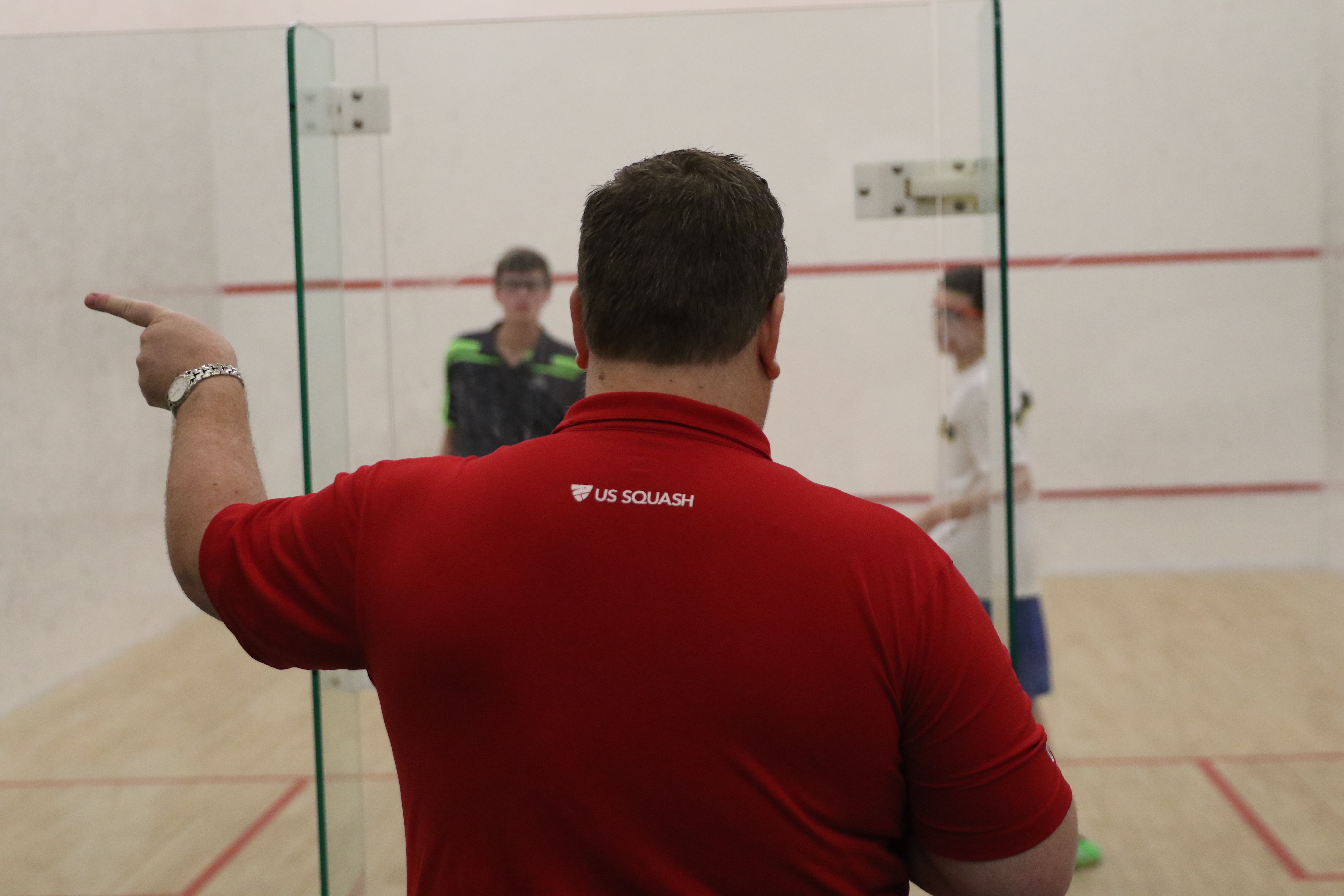
by Barry Faguy
HEY REF I was told that when I’m officiating, I shouldn’t ask questions of the players. Is that right?
Nope; in fact, it’s quite the opposite. The rules make specific reference to the referee needing to clarify certain things, such as not knowing why a player was requesting a let, or (with marker issues), not being sure which return is being appealed. If a player makes a claim involving the opponent (for example, saying there was backswing contact), then it stands to reason that if you are unsure if there was contact, you need a confirmation or a denial from the opponent—otherwise you can’t make a fair decision. If you’re not sure whether a player is actually requesting a let—ask. The player might be conceding the rally, and if you blurt out a favorable decision for that player—embarrassment is the only possible result. Trust me; I’ve done it.
HEY REF I’m sometimes confused when I’m reffing, either about what the rule is for a certain situation or because sometimes I get confused when things happen too fast and everything is just a blur of motion. Should I just automatically decide to play a let when that happens?
In a word, yes. Before the 2014 rules came out, there used to be a provision that addressed those issues, but for unexplained reasons, it’s no longer there. If you think about it, playing a let when you are uncertain is a fair and commonsense thing to do. However, if you claim uncertainty as the explanation for your decisions too often, the players will start wondering if you know what you’re doing. They might even politely suggest that you start officiating underwater basket weaving.
There is one, somewhat rare exception. Even in the face of uncertainty, you could legitimately award a stroke when a marker’s call has interrupted a winning return by the incoming striker. For example, player A is stretched out on the ground in the right front, having just made a drop shot. player B anticipated correctly and is right there, ready to hit the ball for an unquestionable cross-court winner—but your marker called “not up” on the drop shot. Player A complains that the drop was indeed good, but you, as referee, are not sure. Playing a let would clearly be unfair to the striker who was essentially guaranteed the point, either because the ball was indeed not up, or because the certain winner was interrupted. In such a case, you should declare your uncertainty about the pick up and then add your decision of the stroke to the striker, citing fairness as your reason.
HEY REF I was refereeing a match where one of the players said a bunch of negative things to me, like “That was a bad call,” “What the heck are you doing,” “You’re pathetic” and “You’re an idiot.” I know refs are often criticized, but how much abuse should I tolerate?
None. Whether the referee is right or wrong, obvious abuse must not be tolerated and should be dealt with using an immediate and significant penalty like a conduct stroke. A player is allowed to question a decision or express disagreement, but it must be done without rudeness. Even if the unwanted words or actions are considered mild, it’s a good idea for the referee to make clear that such behaviour will not be tolerated. That’s done by using some form of warning. The first option can be a casual “please be careful with such comments, Mr. Smith.” A more formal approach would be “conduct warning Mr. Smith for abuse to officials.” Players will immediately realize that you mean business and this should stem a tendency to display such poor manners.





